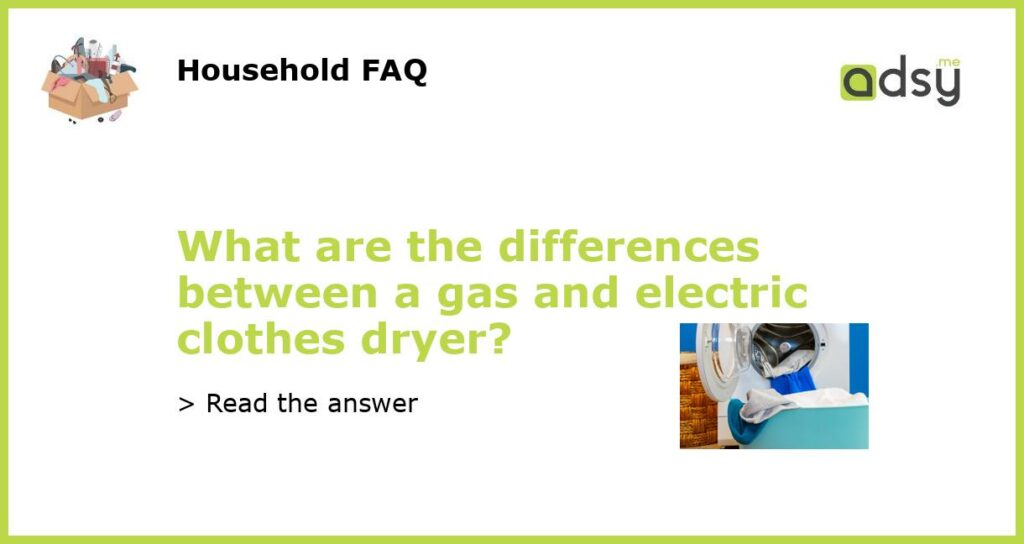Difference in Functionality between Gas and Electric Clothes Dryer
Clothes dryers have become important appliances in our daily life. It is the most convenient way of drying clothes quickly, and there are two primary types of clothes dryers – gas and electric. Both dryers have their pros and cons, and understanding the difference between these two appliances is a must to determine which one suits your needs best.
How Gas Clothes Dryer Works
Gas clothes dryers use natural gas or propane to heat the air that dries the clothes. The dryer ignites the burner, which heats the air, and then the hot air circulates through the clothes inside the drum, evaporating the moisture from the clothes. The excess moisture goes out of the house through a vent or duct.
How Electric Clothes Dryer Works
Electric clothes dryers use electricity to heat air that dries clothes. The dryer uses a heating element that heats the air, which then enters the drum and removes moisture from the clothes. The moisture flows out of the house through a duct or vent.
Difference in Cost of Running Gas and Electric Clothes Dryer
Although the upfront cost of buying a gas dryer usually outweighs that of an electric dryer, gas dryers are cheaper to run in the long term. Natural gas is generally less expensive than the cost of electricity. So, a gas dryer can save you an average of 50% on your energy bill compared to an electric dryer.
Difference in Efficiency between Gas and Electric Clothes Dryer
Gas dryers are generally more efficient than electric dryers since they heat up faster, dry clothes quicker and produce less static. Gas dryers use Propane or Natural gas, which results in a hotter flame and faster drying times. Also, the gas dryer is excellent for drying large loads, making it more energy-efficient in the long-term.






